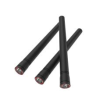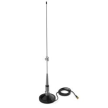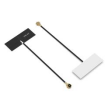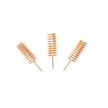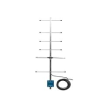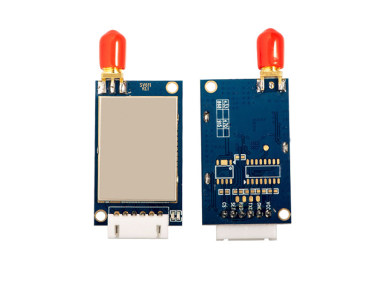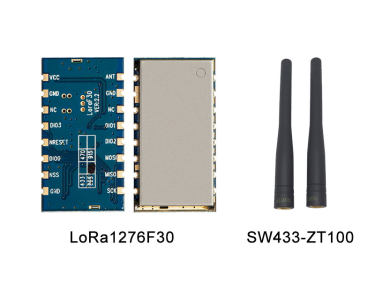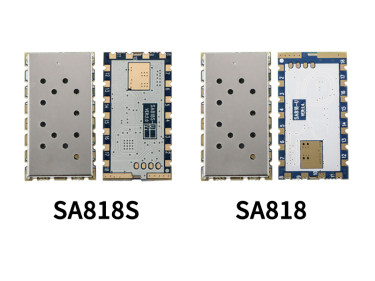Introduction to several common antenna for wireless communications
Antennas are crucial for wireless modules. Suitable antennas can optimize the communication network and increase the range and reliability of communication. The selection of antennas has a great impact on the data communication of final module . An inappropriate antenna will lead to a decrease in communication quality. For different market applications, the material, placement method, and performance of the antenna are also very different. The following is a brief example of several antennas from NiceRF Company
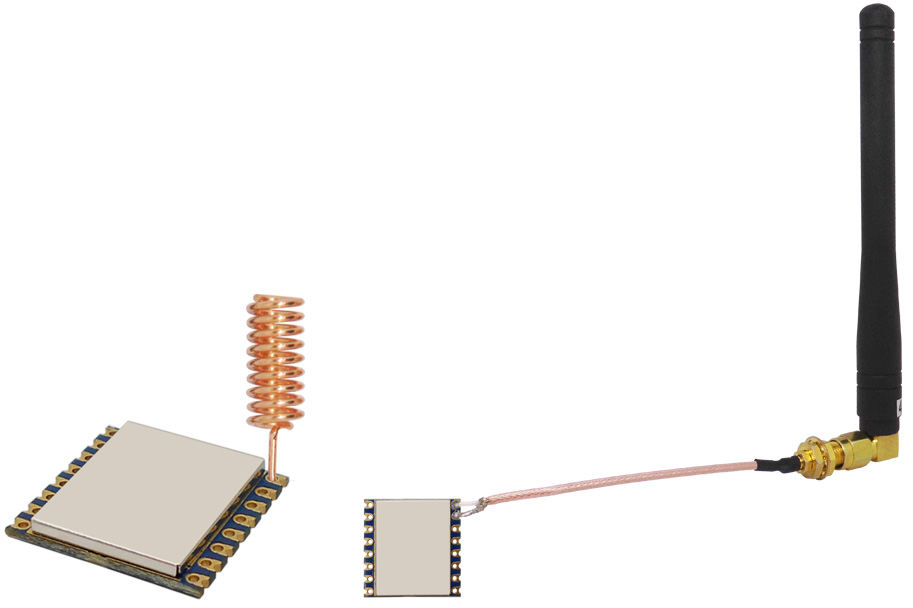
Rod Antenna: The rod antenna is a common form of antenna. Its principle is based on placing a conductor rod in a magnetic field to achieve signal reception and transmission. It is widely used in wireless communication systems.
Sucker Antenna
The sucker antenna, also known as a suction antenna or suction antenna scanner, is a special type of antenna. It typically consists of a suction cup and an antenna, where the suction cup can secure the antenna to an object or surface, thereby achieving better signal reception and transmission.
PCB Antenna
PCB antenna is an antenna form directly printed on a PCB (Printed Circuit Board). This type of antenna plays an increasingly important role in modern wireless communication devices, especially in mobile devices, IoT devices, and wireless sensor networks. Due to its compact size, lightweight, and low cost, it has been widely used.
FPC Antenna
FPC (Flexible Printed Circuit) antenna is a flexible antenna made of flexible materials, suitable for scenarios where the antenna needs to bend or conform to specific shapes. Its advantages include high flexibility, the ability to conform to different surface shapes, and it is often used in devices with special shape requirements, such as wearable devices or uniquely shaped sensors.
Spring Antenna
The spring antenna is a type of helical antenna. Its primary function is to radiate and receive radio waves. Due to its low cost, small size, ease of installation, good VSWR (Voltage Standing Wave Ratio) performance, resistance to vibration and aging, the spring antenna is increasingly used in the field of radio communication.
Yagi Antenna
The Yagi antenna consists of an active element (usually a folded dipole), a passive reflector, and several passive directors arranged in parallel. Invented in the 1920s by Hidetsugu Yagi and Shintaro Uda of Tohoku University in Japan, it is known as the "Yagi-Uda antenna" or simply "Yagi antenna."
IPEX Antenna
IPEX antenna is a new high-performance antenna with high gain and frequency response. It can achieve optimal performance in different frequency bands and environments, including both indoor and outdoor settings. The IPEX antenna is widely used in mobile communications, smart homes, the Internet of Things (IoT), and vehicle networking.
GPS Antenna
GPS antenna is used to receive satellite signals for positioning or navigation. Receiving these signals requires antenna. GPS satellite signals are divided into L1 and L2, with frequencies of 1575.42 MHz and 1228 MHz, respectively. L1 is an open civilian signal with circular polarization and a signal strength of around -166 dBW, which is relatively weak. These characteristics necessitate a specialized antenna for receiving GPS signals.
Type |
Product |
Features |
Gain | Communication frequency bands |
Rod antenna | | Compact and easy to install, aging-resistant, suitable for various terminal devices. |
2.15~3dBi |
150MHz/315~365MHz 433/470/868/915MHz 2.4GHz
|
Sucker Antenna | |
No need for mounting brackets or other additional equipment; it only needs to suck to flat surface. |
3~5.5dBi |
315/433/470/490MHz 868/915MHz 2.4GHz/4Ghz |
Onboard PCB Antenna | |
Built-in module, low cost, no need for multiple debugging. |
4.8~7dBi |
4000-8000MHz (UWB module antenna) |
FPC Antenna |
| Low-cost,ultra-wide band omnidirectional antenna |
3dBi |
3700-8000MHz (UWB module antenna) 433MHz
|
Copper Spring Antenna | |
Low-cost,ultra-wide band omnidirectional antenna |
2.15dBi |
315/433/470/490MHz 868/915MHz 2.4GHz |
Yagi antenna | |
High gain Anti-interference Wide bandwidth |
11dBi |
433/915MHz
|
IPEX Antenna | |
Good signal direction and strong anti-interference |
1dBi |
2.4GHz |
GPS Antenna |
|
Built-in active antenna High gain, wide main lobe beam, etc. |
18/3dBi |
1575.42MHz 1561.098MHz |
Antenna Usage Considerations:
The following principles should be followed when using the antenna to ensure the best communication distance of the module:
1. Avoid placing the antenna close to the ground , and keep it away from obstacles as far as possible.
2. If using sucker antenna, try to keep the lead wire straight and ensure the suction cup base is attached to a metal surface.
 +86-755-23080616
+86-755-23080616
 sales@nicerf.com
sales@nicerf.com
Website: https://www.nicerf.com/
Address: 309-314, 3/F, Bldg A, Hongdu business building, Zone 43, Baoan Dist, Shenzhen, China


 English
English





